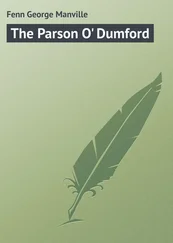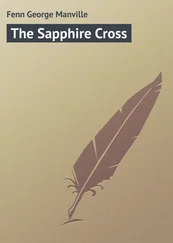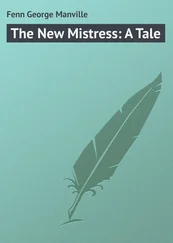George Fenn - The Story of Antony Grace
Здесь есть возможность читать онлайн «George Fenn - The Story of Antony Grace» — ознакомительный отрывок электронной книги совершенно бесплатно, а после прочтения отрывка купить полную версию. В некоторых случаях можно слушать аудио, скачать через торрент в формате fb2 и присутствует краткое содержание. Жанр: foreign_prose, на английском языке. Описание произведения, (предисловие) а так же отзывы посетителей доступны на портале библиотеки ЛибКат.
- Название:The Story of Antony Grace
- Автор:
- Жанр:
- Год:неизвестен
- ISBN:нет данных
- Рейтинг книги:3 / 5. Голосов: 1
-
Избранное:Добавить в избранное
- Отзывы:
-
Ваша оценка:
- 60
- 1
- 2
- 3
- 4
- 5
The Story of Antony Grace: краткое содержание, описание и аннотация
Предлагаем к чтению аннотацию, описание, краткое содержание или предисловие (зависит от того, что написал сам автор книги «The Story of Antony Grace»). Если вы не нашли необходимую информацию о книге — напишите в комментариях, мы постараемся отыскать её.
The Story of Antony Grace — читать онлайн ознакомительный отрывок
Ниже представлен текст книги, разбитый по страницам. Система сохранения места последней прочитанной страницы, позволяет с удобством читать онлайн бесплатно книгу «The Story of Antony Grace», без необходимости каждый раз заново искать на чём Вы остановились. Поставьте закладку, и сможете в любой момент перейти на страницу, на которой закончили чтение.
Интервал:
Закладка:
From that day forward Mary was always cutting me great slices of new bread and thickly spreading them with butter.
“There,” she used to say ungraciously, “I don’t like boys, but they shan’t half-starve you while I’m here.”
I was so moved by her unexpected kindness – for it really was done out of goodness of heart – that, having become somewhat hardened to being a confederate in this unlawful acquisition of provender, on one occasion I threw my arms round her neck and kissed her.
“Why, you impudent young scamp, what d’yer mean?” she exclaimed, in astonishment.
“Please, Mary,” I said, “I didn’t mean to be impudent; it was because you were so good to me.”
“Good? Stuff!” she said roughly, “I’m not good. There, get along with you, and don’t you do that again.”
I certainly should have run a good chance of being half-starved but for Mary and another friend.
One day when I opened my desk, I found just inside it a plate with an appetising piece of pudding therein, and concluded that it was Mary’s doing; but I could not be sure, for her benevolence always took the form of thick slices of bread and butter.
The next day there was a piece of cake; another day some apples; another, a couple of tartlets; and at last I determined to hide and see who was the donor of these presents, so welcome to a growing boy. I had made up my mind at last that they came from Hetty, and I was right; for going inside the large paper cupboard one day, instead of going out to fetch the newspaper according to custom, this being one of my new duties, I saw the office door gently open and Hetty’s little head peering cautiously in. Then, satisfied that no one was near, she ran lightly to the big desk; I heard it shut down hastily, and then there was a quiet rustling noise, the office door closed and she was gone.
This went on regularly, and at last one day it occurred to me that I should like to make her a present in return. I had a few shillings, the remains of my pocket-money, and I turned over in my own mind what I should give her. Cakes or sweets I voted too trifling, a doll too childish. What should I buy then? Suddenly I recollected that there were in a window in the little town some pretty silver brooches formed like a knot of twisted ribbon, and one of these I determined to buy.
It took three out of my five shillings; but it looked very pretty in its little box, reposing on pink cottonwool; and having secured it, I returned to my copying at the desk, to think out how I could make my gift.
Nothing was more simple. I wrapped up the little box neatly in a quarter-sheet of foolscap, sealed it with the office wax, and directed it in my best hand to “Miss Hetty Blakeford. From one who is very grateful.”
I felt very conscious and excited as I finished and laid it in the bottom of the desk, just where the presents were always placed for me, and to my great delight, when I looked again there was a plate of tart which the poor child had saved from her own dinner, and the packet was gone.
Chapter Five.
Mr Blakeford Suffers, and I Catch the Echo
My life at Mr Blakeford’s knew but little change. It was one regular monotonous occupation – copy, copy, copy, from morning till night; and but for stolen bits of reading I believe I should have gone melancholy mad. I had no companions of my own age, no older friends to whom I could confide my troubles or ask for advice. Mr Blakeford was always stern and repellent; Mrs Blakeford, on the rare occasions when I encountered her, ill-used, and ready to say something about my being an extra expense. Only at rare intervals did I see little Hetty, and then it would be in the street, when I had been sent to the post, to fetch stamps, or on some such errand. Then I had a smile and a pleasant look to think about till our next encounter.
A year glided by in this fashion, during which time, in spite of his constant complaints, I must have grown very useful to Mr Blakeford, for my handwriting was clear and firm, and I copied a great many documents in the course of the month.
He was as brutal to me as ever, and never lost an opportunity of abusing me for my being an incumbrance, or saying something which sent me miserable to my room.
My tender point, and he knew it well enough, was an allusion to my father’s debt to him; and afterwards, when I went up wretched and low-spirited to bed, I used to make a vow that some day or another I would save enough money to pay him all my father owed, and so free his memory from what the lawyer always told me was a disgrace.
Quite eighteen months had elapsed, when it became evident to me that Mr Blakeford was in some trouble with one of his clients. This latter, a tall florid-looking farmer, had, as I learned from what I heard of their conversation, borrowed money from my employer upon some security, with the understanding that payment was not to be enforced so long as the heavy interest was provided for.
Mr Blakeford’s business seemed to consist a great deal in money-lending, and every now and then my old acquaintance, Mr Rowle, came to the office for instructions, and found time for a friendly chat.
Upon this occasion I noticed that Mr Blakeford was very anxious about the coming of some one to the office, and he spent a good deal of time in watching from one of the windows.
He was sternly examining a piece of copying that I had just finished, when there came three heavy knocks with a stick upon the outer door of the office.
Mr Blakeford turned yellow, and, catching me by the arm, whispered —
“It’s Mr Wooster. Antony, say I’m not at home. Say I’ve gone out. Quick.”
He pushed me towards the door, and I went to open it just as there were three more heavy knocks, and on drawing back the fastening, there stood Mr Wooster, the stout, tall, farmer-looking man, scowling and angry.
“Where’s Mr Blakeford?” he cried, catching me fiercely by the collar, and shaking a stout ash stick he carried.
“Please, sir – ” I began.
“It’s a lie!” he roared; “he’s not out. Didn’t he tell you to say he was out?”
“Yes, sir,” I faltered, and he strode straight in; and as I followed, I saw him catch Mr Blakeford by the throat and pin him in his chair.
“Fetch the constable, Antony,” cried Mr Blakeford. “Quick!”
“Stop where you are, you young dog,” roared the farmer, “or I’ll kill you. Now, you scoundrel, what do you mean by seizing my goods, by putting your rascally man in possession after promising me in this office that you would never put me to any inconvenience?”
“If you have any complaint to make against me, Mr Wooster, employ your solicitor,” cried Mr Blakeford hoarsely.
“Hang your solicitor and the whole crew, you scoundrelly serpent!” roared the farmer. “You’ve ruined me, as you ruined that poor boy’s father, and a score more before him.”
“Antony – a constable – help!” cried Mr Blakeford, for he was yellow and green with fear.
“If Antony Grace stirs, I’ll crush him like I would a snail,” cried the farmer. “And now look here, you crawling snake; I trusted you because I didn’t believe any one could deliberately ruin another for the sake of a few pounds.”
“Mr Wooster, if you dare to strike me,” cried the miserable coward, “I shall proceed against you for assault.”
“So you may,” cried the farmer, with a bitter laugh; “and as you’ve got every penny I had, much good may it do you. Look here, Blakeford; if I knew that I should be transported for life to Botany Bay for what I’m going to do, I’d do it now.”
As he spoke, he spat in his hand, took a fresh grip of the ash stick, and, in spite or Mr Blakeford’s cries for help and mercy, he thrashed him till the stick broke in pieces; and then, taking him by the collar with both hands, he shook him till he was tired, and ended by throwing him back in his chair.
Читать дальшеИнтервал:
Закладка:
Похожие книги на «The Story of Antony Grace»
Представляем Вашему вниманию похожие книги на «The Story of Antony Grace» списком для выбора. Мы отобрали схожую по названию и смыслу литературу в надежде предоставить читателям больше вариантов отыскать новые, интересные, ещё непрочитанные произведения.
Обсуждение, отзывы о книге «The Story of Antony Grace» и просто собственные мнения читателей. Оставьте ваши комментарии, напишите, что Вы думаете о произведении, его смысле или главных героях. Укажите что конкретно понравилось, а что нет, и почему Вы так считаете.












